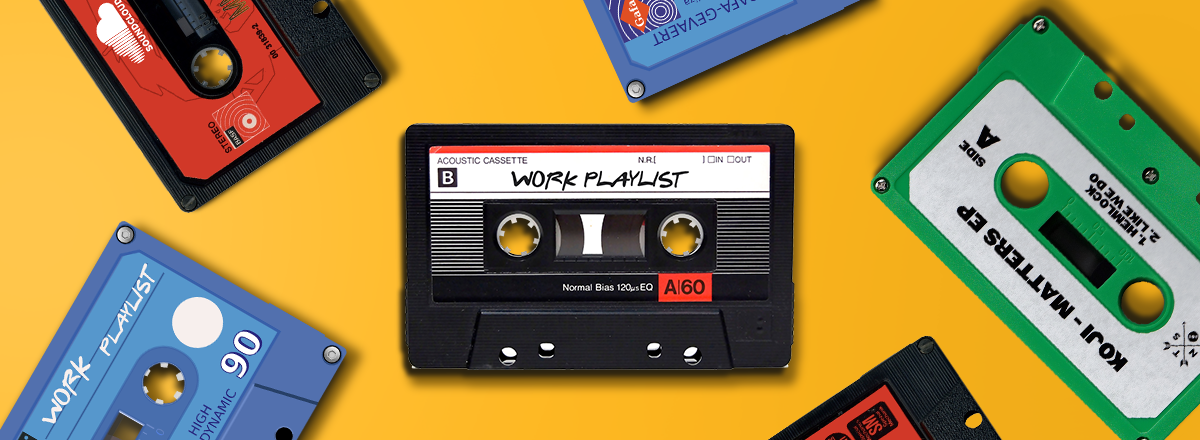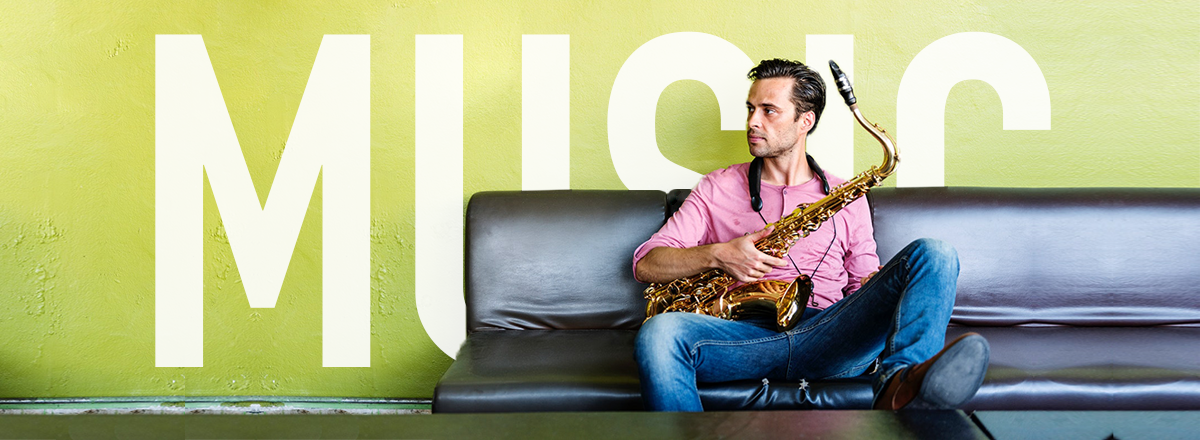Perhaps the most striking example of the impact of technology on the music industry is Spotify, which started a revolution, and in 10 years, the number of its users exceeded 100 million. Demand for digital music is higher than ever, and startups around the world have begun to create tools to upgrade and modernize the industry. In this article, we'll explore Israeli companies that offer a variety of solutions for musicians and listeners, from a wireless touchpad that replaces many guitar pedals to wearable devices that enhance the physical sensations caused by the music.
1. JoyTunes
The app made by the startup JoyTunes will help you understand the basics of the piano. The MusicSense Engine technology (proprietary and patented) is used to listen to the notes played by users, recognize them, and provide real-time feedback. According to the founder of the company, Yuval Kaminka, this is what distinguishes JoyTunes from its competitors:
“Users can in a few minutes play their first song with three notes, 20 minutes later play five notes, and in an hour and a half can play [the song] Jingle Bells in full. We improve pedagogy all the time. We look for those aha moments and milestones for users to realize how much they are learning.”
Simply Piano, the most famous JoyTunes app, shows users which piano keys to press to play a song. The company noted that Simply Piano has become one of the most popular apps on the App Store and Google Play. The company has raised a total of $43 million to date. JoyTunes aims to hit every home and even become “Netflix for Music Learning”

2. Emeo
Tel Aviv-based Emeo has announced the launch of a new product – a digital saxophone simulator. The Emeo offers a unique solution to saxophonists' main problem – the instrument makes a very loud sound and is difficult to muffle during rehearsals. The Emeo works like an electronic musical keyboard that can be connected to a computer via USB, MIDI, or to a computer and smartphone via Bluetooth. It is practically a digital air movement controller. The difference between the Emeo and other MIDI controllers is that it feels like a real saxophone.
“You play the Emeo through speakers or headphones, by connecting it via USB-MIDI or Bluetooth to DAW programs on computers, tablets and smartphones,” said Emeo’s marketing specialist Michael Simkin.
When the co-founder of the company and professional saxophonist Oleg Raskin was younger, his family members and neighbors complained about the loud sound of the saxophone. He tried to muffle it with soundproofing and tried to put special soft bags into the instrument, but none of these methods was perfect. Five years ago, Raskin decided to team up with friends Evgeny Klukin and Eddie Goffman, owner of the Woodwind Lab in Tel Aviv and an experienced woodwind repairman – to try to solve the problem again. Together they developed a prototype made from a real saxophone. This is how the Emeo was born – an electronic saxophone, as close as possible to the usual one.

3. RevPad
Rock band guitarists are known for their high-pitched solos. They use pedal sound effects for such magnificent sound. Most musicians use multiple pedals and have to switch between them throughout the entire performance to get the sound they want. RevPad from Israeli startup GTC Sound Innovation frees guitarists from a lot of pedals and tangled wires. The wireless touchpad controller helps you easily connect to any instrument and use multiple sound effects at a time.
“Every guitarist has effects that he uses,” says Oded Elbonim, GTC’s sales and marketing director. “If it’s distortion, if it’s echo, if it’s tremolo, if it’s harmonizer, if it’s any kind of silly pedal that sits on the pedalboard on the floor. I’m sure you’ve been to concerts before, where you’ve seen the guitar player sometimes bending down and quickening and always having to go back to his place at the right time. The concept is that we’ve developed a touchpad that is attached to your guitar. It’s attached by velcro — and you can mount it on your guitar and take it off your guitar easily and freely to transfer to another guitar.”
It is an entirely wireless product and does not require any special software. The RevPad touchpad includes 30 categories of sound effects. According to the GTC website, Revpad is currently selling for $644.99. The rug alone costs $149.
4. Woojer
An American-Israeli startup founded in 2011 has developed a unique polyphonic “haptic technology.” It amplifies music and sound so much that the user can literally feel the sounds. This is a reasonably mobile device, and you can literally wear it: you put on a special belt and vest.
Woojer Edge is the everyday solution for immersion on the go.
— Woojer- Born to Feel (@Woojer) July 10, 2020
Follow us 🔝🔝🔝 so you'll never miss out on our promotions & giveaway contests! 🤩
.
.
.
.#Woojer #BornToFeel #WoojerEdge #VestEdge #StrapEdge #WoojerStrap #WoojerVest #AllTheFeels #Feel #music pic.twitter.com/YbEJwwxTej
“We have our own patented components that give you those haptic sensations to very accurately reproduce the same experience that even a deaf person will experience when they go to a concert or a theater,” says Kfir Bar-Levav, co-founder and CEO at Woojer.
According to the co-founder of the company, Woojer technology uses the low frequency of any sound and translates it into a vibration that the body feels. At the end of 2019, the project ran an Indiegogo campaign, during which more than 20 thousand sponsors contributed more than $4 million. Fundraising is still ongoing, but device shipments have already begun. There was also a Kickstarter campaign last year.














